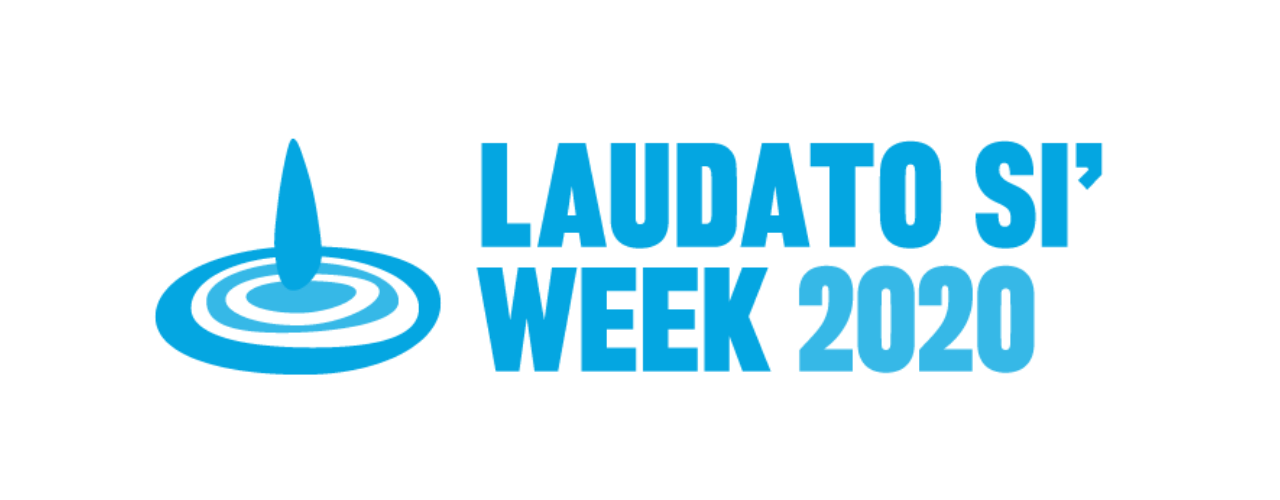
This week is Laudato Si Week 2020, the 5-year anniversary of the publication of Pope Francis’ Encyclical on Caring for our Common Home.
“It cannot be emphasised enough how everything is interconnected… When we speak of the “environment”, what we really mean is a relationship existing between nature and the society which lives in it. Nature cannot be regarded as something separate from ourselves or as a mere setting in which we live. We are part of nature, included in it and thus in constant interaction with it… We are faced not with two separate crises, one environmental and the other social, but rather with one complex crisis which is both social and environmental. Strategies for a solution demand an integrated approach to combating poverty, restoring dignity to the excluded, and at the same time protecting nature.” (§ 139-140)
Covid-19 has dictated how we celebrate its half decade anniversary this year, with online activities and virtual meetings replacing social gatherings and celebrations.
Our enforced isolation, however, provides us with an opportunity to reflect anew on Pope Francis’ call for an Ecological Conversion and his teachings that we need to view the crises, that are occurring now, through an integral ecology lens.
No one can deny the immediate crisis facing us is the global pandemic. But less visceral, yet no less present are deeper crises: climate breakdown, the 6th mass extinction, and spiralling global inequality.
They are not occurring in isolation of one other. Francis constantly draws our attention to how each crisis is playing out alongside the others, with the resulting interactions either amplifying, ameliorating or highlighting them. It cannot be emphasised enough how everything is interconnected.
Evidence of our role in causing an increase in the risk of this pandemic is building. The destruction of biodiversity and the natural environment, a symptom of our lack of respect for ‘Our Common Home’, is facilitating the transfer of viruses to humans. Like most contemporary “natural” disasters, this is as much man-made as an act of fate.
This pandemic has played a major role in highlighting and amplifying the injustices and inequalities that exist in our society with varying degrees of access to housing, healthcare, childcare, and work for a fair wage available to individuals and families. We might say that we are all in this together, but some of us are trapped much deeper depending on our socio-economic situation and location. In this way, the global pandemic mirrors the climate crisis in that it is the most vulnerable that are impacted the most.
When we remember this, we inevitably “become painfully aware, to dare to turn what is happening to the world into our own personal suffering and thus to discover what each of us can do about it”. Laudato Si’ never settles for asking us to become technical experts in these social problems. It asks us to implicate ourselves in the suffering, to live our lives close to those who easily overlooked.
Climate action without social justice will not work.
Ireland is not only living through these global crises but going through a transition in government, that is being necessarily protracted due to the ongoing response to Covid-19.
While government formation negotiations are proceeding, we need to insist that there can be no compromises on social justice and equality while we demand progressive policies on tackling the climate crisis. Climate action without social justice will not work. “The human environment and the natural environment deteriorate together; we cannot adequately combat environmental degradation unless we attend to causes related to human and social degradation” (LS 48).
Successfully reducing our emissions but continuing to preside over the inequality which resulted in the housing crisis or the inhumanity of the direct provision centres will mean that the new government will fail in its duty to create a better Ireland. No serious environmentalism can settle for such emaciated “progress”.
Similarly, failing to ensure a just transition to a low-carbon economy with social justice at its centre, while reversing the terrifying decline in biodiversity, will ensure that in the long term this will fail. “We have to realise that a true ecological approach always becomes a social approach; it must integrate questions of justice in debates on the environment; so as to hear both the cry of the earth and the cry of the poor” (LS 49).
These issues will be amplified as the chaos of the current pandemic recedes. A tsunami of homelessness and unemployment is coming, bringing with it the threat of renewed austerity which battered Ireland during the previous recession. We know that the policies rooted in neoliberalism can only fail to ensure these transitions. Failure to invest in public services weakens our ability to deal with crises, which our painfully underfunded public health care can attest to. Our reliance on the private sphere to deliver our housing, childcare, and insurance has been a stumbling block as we have responded to Covid-19. The market is ill equipped to reduce social inequalities and conserve the environment, “we need to reject a magical conception of the market, which would suggest that problems can be solved simply by an increase in the profits of companies or individuals” (LS 190)
The next government in Ireland will need to take a systematic view of all these problems and see them for that they are – the interconnected symptoms of a broken system that exalts the economy over the vulnerable people in our society or the intrinsic value of nature.
Reading Laudato Si’ five years on, one is struck by the prescience of Francis’ diagnosis, the breadth of his vision for response, and how integral ecology remains a largely overlooked concept in Irish policy. Holistic, integral ecology solutions that not only create a more just and equal society but also repair our broken relationship with nature will be needed as we navigate our way into Ireland after Covid-19.

